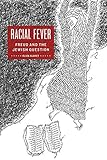Racial Fever : Freud and the Jewish Question / Eliza Slavet.
Material type: TextPublisher: New York, NY : Fordham University Press, [2022]Copyright date: ©2009Description: 1 online resource (272 p.)Content type:
TextPublisher: New York, NY : Fordham University Press, [2022]Copyright date: ©2009Description: 1 online resource (272 p.)Content type: - 9780823231423
- 9780823292462
- online - DeGruyter
| Item type | Current library | Call number | URL | Status | Notes | Barcode | |
|---|---|---|---|---|---|---|---|
 eBook
eBook
|
Biblioteca "Angelicum" Pont. Univ. S.Tommaso d'Aquino Nuvola online | online - DeGruyter (Browse shelf(Opens below)) | Online access | Not for loan (Accesso limitato) | Accesso per gli utenti autorizzati / Access for authorized users | (dgr)9780823292462 |
Frontmatter -- Contents -- Acknowledgments -- A Note on Sources -- Introduction -- 1. Moses and the Foundations of Psychoanalysis -- 2. Freud’s ‘‘Lamarckism’’ and the Politics of Racial Science -- 3. Circumcision: The Unconscious Root of the Problem -- 4. Secret Inclinations beyond Direct Communication -- 5. Immaterial Materiality: The ‘‘Special Case’’ of Jewish Tradition -- Belated Speculations: Excuse me, are you Jewish? -- Notes -- Works Cited -- Index
restricted access online access with authorization star
http://purl.org/coar/access_right/c_16ec
What makes a person Jewish? Why do some people feel they have physically inherited the memories of their ancestors? Is there any way to think about race without reducing it to racism or to physical differences? These questions are at the heart of Racial Fever: Freud and the Jewish Question. In his final book, Moses and Monotheism, Freud hinted at the complexities of Jewishness and insisted that Moses was really an Egyptian. Slavet moves far beyond debates about how Freud felt about Judaism; instead, she explores what he wrote about Jewishness: what it is, how it is transmitted, and how it has survived. Freud’s Moses emerges as the culmination of his work on transference, telepathy, and intergenerational transmission, and on the relationships between memory and its rivals: history, heredity, and fantasy. Writing on the eve of the Holocaust, Freud proposed that Jewishness is constituted by the inheritance of ancestral memories; thus, regardless of any attempts to repress, suppress, or repudiate Jewishness, Jews will remain Jewish and Judaism will survive, for better and for worse.
Mode of access: Internet via World Wide Web.
In English.
Description based on online resource; title from PDF title page (publisher's Web site, viewed 03. Jan 2023)


